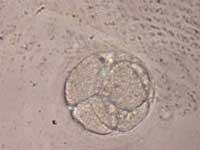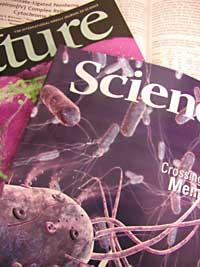In the eye of others
2006/01/19 Carton Virto, Eider - Elhuyar Zientzia

A new case opens on Monday in Norway. Apparently, it is a fraud the article published last year in the prestigious magazine The Lancet, the principal investigator of the Radio Hospital of Oslo, referring to cancer research. The article concluded that nonsteroidal anti-inflammatory drugs decreased the risk of mouth cancer, while their administration increased the risk of heart disease. To do this, he analyzed the data of 900 people, but everything seems right. This researcher was responsible for falsifying data on the age, weight, sex, diagnosis and use of drugs of all these people.
When this happens, many questions come to mind. Why have they done so? Do journals fail to prove the validity of published research? And do scientific institutions not control their researchers? The fraud has been committed by certain researchers, but the entire system has failed.
Logically, the debate on control systems is not new. In the situations of these days it touches the highest, but also to a lesser degree. Articles published in scientific journals go through the hands of experts in this matter before publication. The author who presented the research does not know who the experts are and they are not known either, at least in theory. This ensures the independence and objectivity of the judge.
These experts analyze the correction of articles, but the valuation process is based on trust in researchers. That is, it is not questioned that the researcher has performed the experiments he presents. This is what Science has used to try to justify itself.

The journal Nature has also spoken long and tense on the subject in the editorials, but without completely reaching the bull. In one he speaks of the ethics of researchers and in the other he thanks his judges. Hwang has described Hwang as the first major fraud in the "era of patented biology very carefully," and recalled that "this is a time when researchers can receive a lot of money and has not said a half word, for example, about the intense competence to publish in 'big' journals. And in many cases it is as important - or more important - as what has been published. The victory is to see the article itself in Science, Nature, Cell, The Lancet, etc. Proof of this are the thousands of articles that each year receive these journals; or the attention that those who work in these media pay to what is published in them.
As an example of this competence, biomedical studies are always cited. Researchers should be published in a prestigious journal and be the first. It is important to get ahead of the rest of the people working in the same field, since among thousands of articles journals do not have space for two similar. And an effective strategy to be the first is to do the work in silence. A significant fact is, for example, that which Nature itself published in a study published in 2003: Between 1966 and 1998 the percentage of scientists who did not want to speak unanimously of their research increased from 50% to 74%. On the other hand, the target arbitrator is an arbitrator who is usually present on many occasions and who can be influenced by personal and professional envy...
The biggest publishers have responded corporately for the moment. And the same is said of democracy: the process of valuing articles is not perfect, but it is the best they have found so far. Surely yes, but...
Published in Berria




